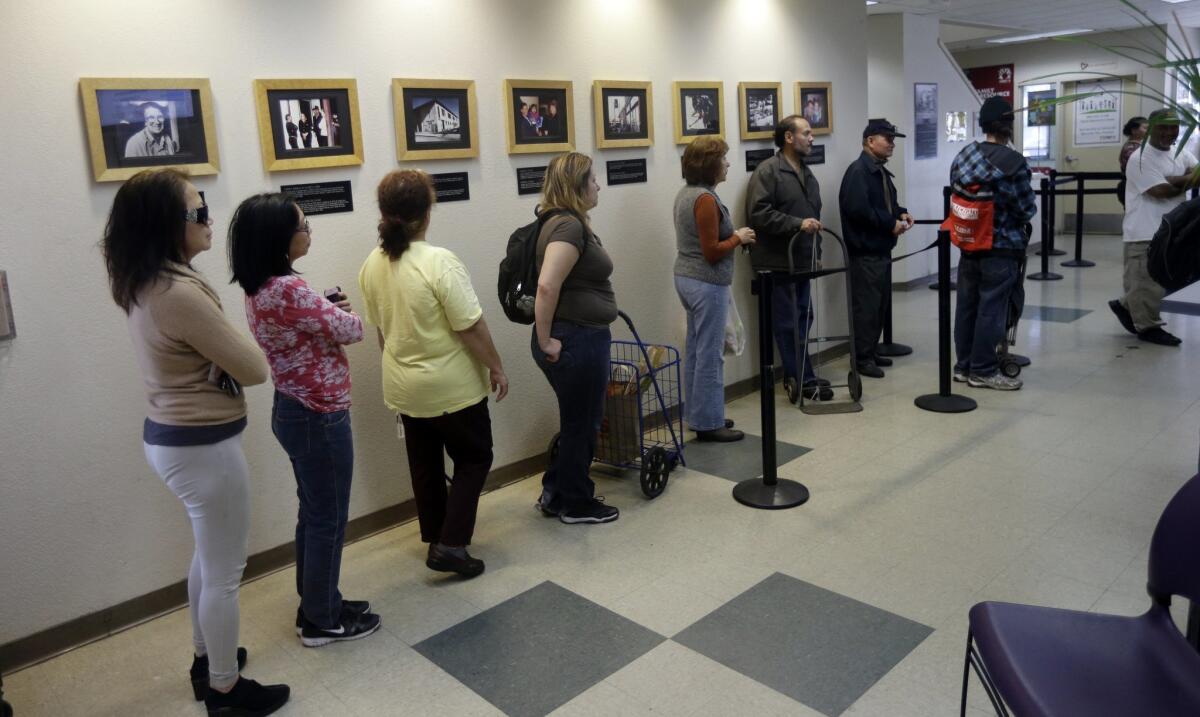Lower-paying jobs dominate economic recovery, study finds

The U.S. economy earlier this year recovered all the jobs lost during the recession, but those new jobs pay an average of 23% less than the ones lost in the downturn, according to an analysis released Monday by the U.S. Conference of Mayors.
Job losses in the higher-paying manufacturing and construction sectors were largely replaced by jobs in lower-wage industries, including hospitality and healthcare, the report said.
It also found a continuing accumulation of wealth among the top 20% of the nation’s earners. From 2005 to 2012, the highest income bracket was responsible more than 60% of all income gains in the country, the report said.
By contrast, the bottom 40% of earners saw only 6.6% of the increases.
“Our economic models project a further drift toward inequality in upcoming years,” said the report, prepared for the mayors group by IHS Global Insight. “Thus it is reasonable to conclude that the ongoing increase in income inequality is a structural feature of the 21st century economy.”
California metro areas, particularly around the Bay Area, had some of the highest concentrations of upper-income earners in the nation, according to the report.
The San Francisco, San Jose and Ventura metro areas were among the top-10 metro areas with the largest shares of upper-income households (those earning more than $75,000 a year), out of more than 350 analyzed.
The San Jose metro area, which includes Silicon Valley, is also projected to see median income grow at the third-fastest rate in the nation through 2017. The Vallejo metro area, by contrast, is projected have one of the slowest rates of wage growth over the next three years.







